-
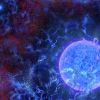 +16 +1
+16 +1How our universe was born: new clues are emerging to when it all began
Our universe may have started with the big bang, but it took time for stars to form. Now scientists believe they've captured the first clues to when that happened.
-
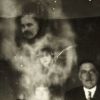 +15 +1
+15 +1The occult roots of higher-dimensional research in physics
How spiritualists of the 19th century forged a lasting association between higher dimensions and the occult world. By Paul Halpern.
-
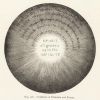 +16 +1
+16 +1Worlds Without End
At the end of the 19th century, inspired by radical advances in technology, physicists asserted the reality of invisible worlds — an idea through which they sought to address not only psychic phenomena such as telepathy, but also spiritual questions around the soul and immortality. Philip Ball explores this fascinating history, and how in this turn to the unseen in the face of mystery there exists a parallel to quantum physics today.
-
 +2 +1
+2 +1Quantum theory: it’s unreal
Terry Rudolph, Imperial College London (Nov. 5, 2014)
-
 +13 +1
+13 +1Actually, There Is a Time Like the Present
Think there’s no time like the present? Modern physics begs to differ. By Mark Shumelda.
-
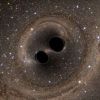 +18 +1
+18 +1Gravitational waves could shed light on the origin of black holes
A new study published in Physical Review Letters outlines how scientists could use gravitational wave experiments to test the existence of primordial black holes, gravity wells formed just moments after the Big Bang that some scientists have posited could be an explanation for dark matter. By Kevin Stacey. (Nov. 30, 2017)
-
 +9 +1
+9 +1‘Crazy’ Supernova Looks Like a New Kind of Star Death
Astronomers are mystified by a strange star explosion in a distant galaxy that might be a relic from an earlier cosmological era.
-
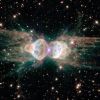 +1 +1
+1 +1That is not dead which can eternal lie
The aestivation hypothesis for resolving Fermi’s paradox. By Anders Sandberg, Stuart Armstrong and Milan Ćirković. (May 10, 2017) [PDF]
-
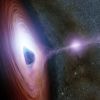 +1 +1
+1 +1A Letter to Einstein from the Future
Two Princeton physicists catch Albert up. By Steven Gubser, Frans Pretorius.
-
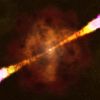 +14 +1
+14 +1Boom! Powerful Cosmic Explosion May Hint at How Black Holes Form
New research has revealed more about how superpowerful gamma-ray bursts are generated and how they evolve over time. By Elizabeth Howell.
-
 +9 +1
+9 +1First Support for a Physics Theory of Life
Take chemistry, add energy, get life. The first tests of Jeremy England’s provocative origin-of-life hypothesis are in, and they appear to show how order can arise from nothing. By Natalie Wolchover.
-
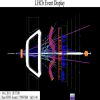 +1 +1
+1 +1Lawbreaking Particles May Point to a Previously Unknown Force in the Universe
Scientists aren’t yet certain that electrons and their relatives are violating the Standard Model of particle physics, but the evidence is mounting. By Jesse Dunietz.
-
 +1 +1
+1 +1Life may be a guide to the evolution of the cosmos – here's how
Many scientists say there's no purpose to life – but a theoretical study suggests there could be. By Michael E. Price.
-
 +1 +1
+1 +1Did Life on Earth Come From Outer Space?
A look at the scientific evidence for panspermia. By Daniel Oberhaus.
-
 +10 +1
+10 +1Quantum common sense
Despite its confounding reputation, quantum mechanics both guides and helps explain human intuition. By Philip Ball.
-
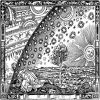 +15 +1
+15 +1Medieval Scholars Believed in the Possibility of Parallel Universes
A 13th-century conflict between faith and science ultimately led to a surprising outcome: a medieval multiverse theory. By Sarah Laskow.
-
 +29 +1
+29 +1Are We Living in a Giant Cosmic Void?
A team of researchers says the Milky Way resides in one of the observable universe’s darkest regions, but some experts aren't so sure
-
 +11 +1
+11 +1A Defense of the Reality of Time
Time isn’t just another dimension, argues Tim Maudlin. To make his case, he’s had to reinvent geometry. By George Musser.
-
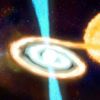 +21 +1
+21 +1Mystery glow of Milky Way likely not dark matter
According to the Fermi LAT collaboration, the galaxy’s excessive gamma-ray glow likely comes from pulsars, the remains of collapsed ancient stars. By Manuel Gnida.
-
 +22 +1
+22 +1Physicists create mind-bending ‘negative mass’ that accelerates backwards and could help explain black holes
Scientists have created a fluid with "negative mass" which they claim can be used to explore some of the more challenging concepts of the cosmos. By Chiara Palazzo.
Submit a link
Start a discussion




















